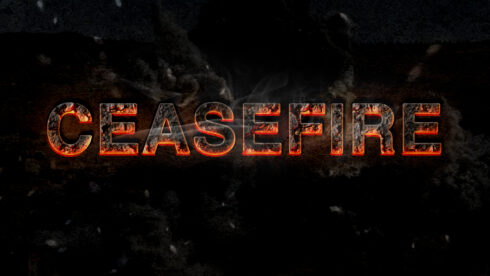India and Pakistan have agreed to an “immediate ceasefire,” United States President Donald Trump announced on May 10, following days of clashes between the two nuclear powers.
“After a long night of talks mediated by the United States, I am pleased to announce that India and Pakistan have agreed to a FULL AND IMMEDIATE CEASEFIRE,” Trump wrote on Truth Social.
Separately, Secretary of State Marco Rubio released a statement, saying that the ceasefire was brokered after 48 hours of talks mediated by him and Vice President JD Vance.
“Over the past 48 hours, Vice President Vance and I have engaged with senior Indian and Pakistani officials, including Prime Ministers Narendra Modi and Shehbaz Sharif, External Affairs Minister Subrahmanyam Jaishankar, Chief of Army Staff Asim Munir, and National Security Advisors Ajit Doval and Asim Malik,” Rubio said. “I am pleased to announce the Governments of India and Pakistan have agreed to an immediate ceasefire and to start talks on a broad set of issues at a neutral site.”
Pakistani and Indian leaders confirmed the ceasefire agreement. However, they said that it was reached after direct talks, not via the U.S.
An Indian foreign ministry official said the deal was “worked out directly between the two countries,” according to the New York Times.
Indian Foreign Minister S. Jaishankar also did not mention the role of the U.S. in a statement confirming the ceasefire. He said that “India has consistently maintained a firm and uncompromising stance against terrorism in all its forms and manifestations.”
“It will continue to do so,” Jaishankar wrote on X.
From his side, Pakistan’s Foreign Minister Ishaq Dar confirmed the ceasefire, again without mentioning any U.S involvement.
“Pakistan has always strived for peace and security in the region, without compromising on its sovereignty and territorial integrity!” the minister wrote on X on Saturday.
The crisis between India and Pakistan began as a result of the April 22 terrorist attack on the resort town of Pahalgam in Indian-administered Kashmir, which claimed the lives of 26 people. New Delhi held militant groups based in Pakistan responsible for the terrorist attack. Islamabad rejected the accusation.
The situation escalated on May 7 when Indian retaliatory strikes against Pakistan claimed the lives of 31 civilians, including women and children. Pakistani shelling killed at least 15 Indian civilians on the same day.
For the next three days, the two counties exchanged strikes along the Line of Control, the de-facto border in Kashmir, as well as across the internationally-recognized border. Overnight, 11 were reportedly killed in Pakistan-administered Kashmir, and a local official lost his life in the Indian part of the region.
Both India and Pakistan started from the beginning that they were not looking for an all-out war, and despite the recent escalation both will likely honor the ceasefire.
Still, this does not mean that the crisis is over. India will reportedly maintain a set of measures it took against Pakistan in the wake of the attack in Pahalgam, including halting a vital water-sharing agreement. The two sides could, however, hold talks to resolve these issues diplomatically.
_______________________________________________________________________________________________________________________
SouthFront: Analysis and Intelligence
NOW hosted at southfront.press
Previously, SouthFront: Analysis and Intelligence was at southfront.org.
The .org domain name had been blocked by the US (NATO) (https://southfront.press/southfront-org-blocked-by-u-s-controlled-global-internet-supervisor/) globally, outlawed and without any explanation
Back before that, from 2013 to 2015, SouthFront: Analysis and Intelligence was at southfront.com





its already been violated and drones are already on the air
no cease fire in my anuz after ramses saxon visit my favorite americunt gay bar
the us press is labeling marco rubio as the good guy that did it all . i wonder if his family is still in the cocaine buisness ?
due to the increasing violence, thousands of pakistanis and indians have ramped up their migration applications to england. the british government is facing a “migration wave” warning – up to 500000 more fromm pakistan and 700000 from india
trump will also join to istanbul talks on 15 may
(trump,putin,zelensky will be in istanbul at 15th may for peace).